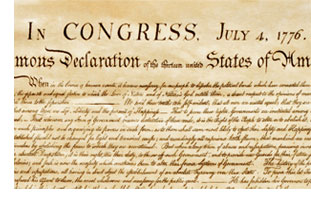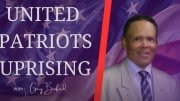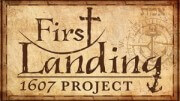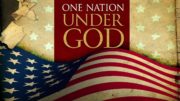As we celebrate the Fourth of July, it is vital to remember the significance of this day beyond the fireworks, cookouts, and a day off work. Independence Day is a celebration of liberty, a liberty deeply rooted in the Christian faith, as acknowledged by our Founding Fathers.
John Adams, one of the prominent figures in the American Revolution, envisioned this day as a time for solemn acts of devotion to God Almighty. He believed that Independence Day would be celebrated as “the day of deliverance, by solemn acts of devotion to God Almighty, … from one end of this continent to the other, from this time forward forever more.”
Similarly, Elias Boudinot, President of the Continental Congress, encouraged Americans to remember with reverential gratitude the miraculous deliverance from tyranny and oppression, likening it to a second exodus from Egypt. He called for the exercise of every virtue—religious, moral, and political—believing that these principles would lead to a state where “Glory to God in the highest; peace on earth; good will towards men” would be universally proclaimed.
Today, many Americans have forgotten the source and the price of our liberty. We have strayed from the principles that ensure our freedom and happiness, neglecting to acknowledge God as the giver of life and liberty. Consequently, we face challenges that threaten our freedoms. In the spirit of our Founders, let us cry out to God for deliverance from modern forms of bondage and strive to make our nation a beacon of hope and virtue once again.
The Christian Foundation of American Liberty
The Declaration of Independence, adopted on July 4, 1776, marked the birth of a new nation—the United States of America. This document, drafted by Thomas Jefferson and revised by Benjamin Franklin and John Adams, clearly states that all men are created equal and endowed by their Creator with unalienable rights, including life, liberty, and the pursuit of happiness. These words highlight the belief that true freedom is a gift from God, a principle that guided our forefathers.
The power of choice is one of the greatest freedoms we have, and knowing where to find true wisdom is crucial. Proverbs 2:6 reminds us, “For the Lord gives wisdom; from his mouth comes knowledge and understanding.” This wisdom is essential as we navigate the freedoms we celebrate today.
Eight Freedoms to Celebrate
-
The Freedom to Believe: America continues to be a refuge for the oppressed, offering opportunities to dream and achieve. However, our faith in God, who provides us with everything for our enjoyment (1 Timothy 6:17), should be our primary reliance.
-
The Freedom to Live Out Our Faith: Unlike some countries where serving God can mean instant death, we have the liberty to practice our faith openly. This foundation assures us that God is in control, even amidst chaos.
-
The Freedom to Worship: We can worship in any way we desire, strengthening our community and our bond with God.
-
The Freedom of Prayer: Submitting our requests to God in prayer is a choice that keeps us reliant on Him, rather than on ourselves.
We would appreciate your donation. -
The Freedom to Have a Say in Government: Voting is a crucial right that allows us to influence decisions that shape our nation.
-
The Freedom of Speech: This right enables us to openly express our opinions, beliefs, and faith, and is fundamental to preaching the Gospel.
-
The Freedom to Petition the Government: We can present requests to the government without fear of punishment, a right that supports our ability to influence governance.
-
The Freedom to Pursue Happiness: True joy comes from walking in the Holy Spirit (Galatians 5:22), allowing us to experience the fullness of life despite life’s challenges.
A Call to Action
As we enjoy the festivities of Independence Day, let us not forget the Christian principles that underpin our liberty. Let us strive to live out these principles daily, acknowledging God as the source of our freedom and working to preserve the values that make our nation great.
In the words of our Founders, may we unite in remembering the miraculous deliverance that Independence Day represents, and may we recommit ourselves to the virtues that ensure our continued freedom and prosperity.
Happy Fourth of July!
The Declaration of Independence
Introduction
- The Declaration of Independence was adopted on July 4, 1776, by the Continental Congress.
- It announced the separation of the thirteen American colonies from Great Britain, forming a new nation—the United States of America.
Unanimous Declaration
- The document was a collective statement from the thirteen united states of America.
Necessity for Separation
- When it becomes necessary for one people to dissolve political ties with another, they must declare the reasons for the separation.
- All people are entitled to separate and equal status according to the laws of nature and God.
Self-Evident Truths
- All men are created equal and have unalienable rights given by their Creator, including life, liberty, and the pursuit of happiness.
- Governments are instituted to secure these rights and derive their powers from the consent of the governed.
- If a government becomes destructive, the people have the right to alter or abolish it and establish a new government that ensures their safety and happiness.
- Prudence dictates that long-established governments should not be changed for light reasons.
- However, when a government consistently abuses its power, the people have the right and duty to overthrow it and establish new safeguards for their future security.
List of Grievances Against King George III
- Refused to approve necessary laws for the public good.
- Prevented the passage of laws crucial for large districts of people unless they forfeited their right to representation.
- Called legislative bodies to inconvenient and distant locations to fatigue them into compliance.
- Dissolved representative houses for opposing his invasions on the rights of the people.
- Refused to allow new elections, leaving the people vulnerable to external and internal dangers.
- Obstructed the population growth and naturalization of foreigners.
- Denied fair administration of justice by controlling judges.
- Created numerous new offices and sent officers to harass the people.
- Maintained standing armies during peacetime without consent.
- Rendered the military independent of and superior to civil power.
- Subjected the colonies to foreign laws and governance.
- Quartered large bodies of armed troops among the people.
- Protected troops from punishment for crimes against the inhabitants.
- Cut off trade with all parts of the world.
- Imposed taxes without consent.
- Deprived the people of trial by jury.
- Transported individuals overseas for trial.
- Abolished English laws and established arbitrary government in neighboring provinces.
- Took away charters, abolished valuable laws, and altered government forms fundamentally.
- Suspended legislatures and claimed power to legislate for the colonies in all cases.
- Declared the colonies out of his protection and waged war against them.
- Plundered seas, ravaged coasts, burnt towns, and destroyed lives.
- Brought in foreign mercenaries to complete works of tyranny.
- Forced fellow-citizens to bear arms against their country.
- Incited domestic insurrections and frontier attacks by merciless Indian savages.
Attempts at Redress
- The colonies repeatedly petitioned for redress, but were met with repeated injury.
- The British government was deaf to the colonies’ appeals for justice and kinship.
Declaration of Independence
- The colonies, appealing to the Supreme Judge of the world, declare themselves free and independent states.
- They are absolved from allegiance to the British crown and all political connection to Great Britain.
- As free and independent states, they have full power to levy war, conclude peace, contract alliances, establish commerce, and perform other acts and things independent states may do.
- The signatories mutually pledge their lives, fortunes, and sacred honor for the support of this declaration.
Signatory
- John Hancock, President of the Continental Congress.





